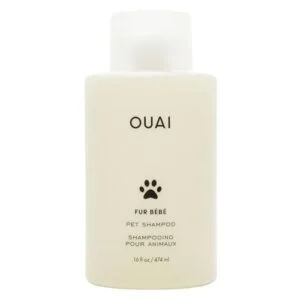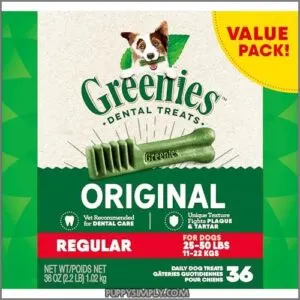This site is supported by our readers. We may earn a commission, at no cost to you, if you purchase through links.
 Cocker Spaniels reach full physical size between 12-18 months old, though emotional maturity takes until around 24 months. Your pup’s height usually maxes out by their first birthday, but they’ll continue filling out and gaining muscle until 18 months. American Cocker Spaniels usually finish growing earlier than English varieties, often stabilizing around 12-15 months.
Cocker Spaniels reach full physical size between 12-18 months old, though emotional maturity takes until around 24 months. Your pup’s height usually maxes out by their first birthday, but they’ll continue filling out and gaining muscle until 18 months. American Cocker Spaniels usually finish growing earlier than English varieties, often stabilizing around 12-15 months.
While genetics play the biggest role, proper nutrition and exercise during puppyhood guarantee healthy development. Weight fluctuations of 2-3 pounds are normal even after reaching adult size.
Understanding these growth patterns helps you adjust feeding, exercise, and training throughout their development stages.
Table Of Contents
- Key Takeaways
- When is a Cocker Spaniel Fully Grown
- Cocker Spaniel Growth Stages
- Typical Size, Height, and Weight
- Factors Influencing Growth Rate
- American Vs. English Cocker Spaniel Size
- Tips for Healthy Growth and Development
- Top 5 Products for Cocker Spaniel Care
- Frequently Asked Questions (FAQs)
- How much does a fully grown cocker spaniel weigh?
- At what age does a cocker spaniel calm down?
- Are cocker spaniels smart?
- How much exercise does a cocker spaniel need?
- How do you relax a cocker spaniel?
- When do Cocker Spaniels stop teething completely?
- How often should puppies visit the veterinarian?
- What vaccines do Cocker Spaniel puppies need?
- Can you spay/neuter before full growth?
- Do Cocker Spaniels need puppy training classes?
- Conclusion
Key Takeaways
- Your Cocker Spaniel reaches full physical size between 12-18 months, but won’t be emotionally mature until around 24 months old.
- American Cocker Spaniels typically finish growing earlier (12-15 months) than English varieties (14-18 months), with males taking longer than females.
- You’ll notice your pup’s height maxes out by their first birthday, but they’ll continue filling out and gaining muscle until 18 months.
- Proper nutrition, regular exercise, and consistent vet checkups during puppyhood are crucial for healthy development and preventing growth issues.
When is a Cocker Spaniel Fully Grown
You’ll know your Cocker Spaniel reaches full physical size between 12-18 months, though they continue maturing emotionally until around 24 months.
Understanding these growth stages helps you provide proper nutrition, exercise, and care throughout their development.
Physical Growth Timeline
Your Cocker Spaniel’s physical growth follows predictable patterns, with most reaching full height by their first birthday. Understanding these developmental stages helps you track healthy development:
- Birth to 8 weeks: Rapid weight gain and basic skeletal development
- 2-8 months: Major growth spurts affecting height and muscle growth
- 9-12 months: Height plateaus while organ maturation continues
- 12-24 months: Final weight adjustments and complete physical maturity
Mental and Emotional Maturity
Your Cocker Spaniel’s mental and emotional maturity develops alongside physical growth, reaching completion around 24 months. During this period, you’ll notice significant behavioral changes as cognitive development progresses.
Their emotional intelligence becomes more polished, improving social interaction with family members and other pets. Consistent training during puppy development shapes their gentle temperament, making Cocker Spaniels responsive companions who form strong bonds with their owners.
Differences in Growth Between Sexes
Growth patterns vary substantially between male and female Cocker Spaniels, with hormonal influence shaping their maturity timeline and final size variation.
Here’s how male growth differs from female development:
- Timeline Differences: Males reach adult weight by 18 months, while females usually finish growing 2-3 months earlier at 15-16 months.
- Size Variation: Adult males average 25-28 pounds and 15-17 inches, compared to females at 22-25 pounds and 14-16 inches.
- Hormonal Influence: Higher testosterone in males promotes continued muscle development past skeletal maturity, while estrogen in females triggers earlier growth plate closure.
Cocker Spaniel Growth Stages
Understanding your Cocker Spaniel’s growth stages helps you provide the right care at each development phase. You’ll witness distinct changes from newborn dependency through adult maturity, with each stage bringing unique needs and benchmarks.
Newborn and Early Puppy Development
Your puppy’s first eight weeks represent the neonatal stage, where rapid sensory development occurs. During this critical period, their eyes open around two weeks, and hearing develops by three weeks. The weaning process usually begins at four weeks as puppies shift from mother’s milk to solid food, establishing the foundation for early nutrition habits.
| Age (Weeks) | Development Marker |
|---|---|
| 0-2 weeks | Eyes closed, relies on touch and smell |
| 2-3 weeks | Eyes open, hearing begins to develop |
| 3-4 weeks | First attempts at walking and playing |
| 4-8 weeks | Weaning process starts, early socialization window opens |
Socialization and Transition Period
During this critical window between 3-14 weeks, your Cocker Spaniel puppy experiences rapid Behavioral Development that shapes their Cocker Spaniel Temperament for life. Proper Puppy Socialization during these weeks helps your future companion develop the confident, friendly Cocker Spaniel Characteristics the breed is known for.
- Fear Periods can create lasting anxieties if not handled gently
- Positive experiences now build lifelong confidence in your pup
- Social interactions teach proper boundaries with people and pets
- Adolescent Changes begin emerging as independence develops
Sexual and Emotional Maturity
Between eight and twelve months, your Cocker Spaniel enters sexual development, with females experiencing their first heat cycle and males becoming reproductively capable. This adolescent phase brings significant behavioral changes, including boundary testing, selective listening, and mood swings that challenge your training efforts.
Emotional landmarks emerge gradually, with temperament stabilizing around eighteen to twenty-four months as social interactions become more predictable and mature.
Owners should also be aware that Cocker Spaniels are prone to ear and skin infections.
Signs of Reaching Adulthood
You’ll recognize your Cocker Spaniel’s shift into adulthood through several clear behavioral changes and physical signs. Their playful puppy antics decrease as they develop a mature temperament around 18-24 months.
You’ll notice reduced puppyhood energy and polished training responses. Additionally, their fully developed adult coat, with rich feathering, becomes apparent, requiring consistent grooming to maintain.
Typical Size, Height, and Weight
Understanding your cocker spaniel’s growth timeline helps you provide proper care during vital development phases. You’ll want to know when they reach their adult size to adjust diet, exercise, and training accordingly.
Average Height at Maturity
Your Cocker Spaniel will reach their mature height range of 14 to 15 inches by 9 to 12 months old. Height variation factors include genetics and breeding lines, while growth plate closure marks the end of vertical development. Measuring adult height accurately helps track your puppy’s development against the ideal height standard.
- Mature Height Range: Cocker Spaniels usually stand 14-15 inches at the shoulder when fully grown
- Height Variation Factors: Genetics, breeding lines, and individual development rates affect final height
- Measuring Adult Height: Use a measuring tape from ground to shoulder blade for accurate assessment
- Ideal Height Standard: Both American and English Cocker Spaniels share similar height expectations
- Growth Plate Closure: Height growth stops when growth plates close around 9-12 months of age
Adult Weight Range
Adult Cocker Spaniels usually weigh between 20 to 30 pounds, with females generally lighter than males. Your dog’s ideal weight depends on their frame size and body composition.
Weight fluctuations of 2-3 pounds are normal, but maintaining weight within the breed standard is important for joint health. Regular monitoring helps prevent obesity, which can substantially impact your Cocker Spaniel’s overall well-being and longevity.
Growth Milestones by Age
By tracking your Cocker Spaniel’s Puppy Development through key Growth Phases by Age, you’ll notice they reach 40-50% of their adult Weight by four months. Height develops rapidly during Adolescent Changes, with most reaching full size by nine to twelve months. Adulthood Markers appear when growth plates close around eighteen months, while Senior Phases begin after seven years as Growth Plateaus stabilize their final dimensions.
This contrasts with larger breeds like Great Danes, where growth plate closure occurs later, between 18-24 months.
Factors Influencing Growth Rate
Your cocker spaniel’s growth rate depends on several key factors that you can influence. Understanding these elements helps you support healthy development and recognize when your pup might need extra attention.
Nutrition and Diet
Quality nutrition fuels your Cocker Spaniel’s growth from puppyhood to senior years. Puppy feeding requires growth-focused diets until 12 months, then switch to adult formulas. Senior nutrition needs change around age 10. Weight management prevents joint issues common in the breed. High-quality proteins support muscle development, while dietary supplements can address specific health concerns. Monitor your Cocker Spaniel growth chart progress regularly. Ideal health can be supported with specialized Cocker food.
Physical Activity and Exercise
Beyond proper nutrition, your Cocker Spaniel’s exercise routine directly impacts their growth development. Exercise intensity should match their age—gentle walks for puppies, increasing activity duration as they mature. Mental stimulation through training games fosters healthy development.
Monitor joint health during growth phases, adjusting Cocker Spaniel exercise accordingly.
Breed differences mean individual needs vary, but consistent daily activity promotes ideal physical and emotional maturation.
Genetics and Breeding
Your Cocker Spaniel’s genes act like a blueprint, determining their final size and growth speed. Responsible breeding practices focus on genetic diversity and health testing to prevent inherited conditions that affect development. Parents with larger lineages usually produce bigger offspring, while DNA tests help breeders identify genetic predispositions.
Breed standards influence selection, but maintaining genetic diversity prevents growth issues common in smaller litter sizes from limited gene pools. Responsible breeders also prioritize health testing schemes to guarantee the wellbeing of their dogs.
Health Conditions and Veterinary Care
Monitoring your Cocker Spaniel’s health throughout their development guarantees proper growth trajectories. Genetic predispositions and common health issues can substantially impact their growth rate and overall development patterns.
Key health factors affecting growth include:
- Preventative care through regular veterinary visits for early detection
- Common ailments like hip dysplasia that can alter physical development
- Breed health screenings for eye problems and neurological conditions
- Senior health monitoring as growth slows after maturity
American Vs. English Cocker Spaniel Size
You’ll notice some key differences when comparing American and English Cocker Spaniels, with American Cockers usually being smaller and more compact than their English cousins.
While both varieties follow similar growth timelines, understanding these breed-specific size variations helps you set realistic expectations for your pup’s adult dimensions.
Key Physical Differences
Size differences between these beloved breeds are like comparing two siblings – clearly related, yet distinctly different. English Cocker Spaniels consistently outsize their American cousins in both height and weight, creating noticeable variations in overall appearance and build.
| Feature | American Cocker Spaniel | English Cocker Spaniel |
|---|---|---|
| Height | Males: 14.5-15.5 inches | Males: 16-17 inches |
| Weight | Males: 25-30 pounds | Males: 28-34 pounds |
| Head Shape | Domed skull, shorter muzzle | Square, setter-like head |
| Coat Texture | Heavier, more feathered | Less coat, silky |
| Bone Structure | Compact, sturdy build | Athletic, square frame |
Breed-Specific Growth Patterns
Two distinct growth trajectories shape English and American Cocker Spaniels differently. English varieties usually reach their developmental stages later, continuing muscle development until 14-18 months, while American Cockers stabilize earlier around 12-15 months, reflecting genetic predisposition and breed standards that influence conformation impact throughout puppy development. They also require consistent mental stimulation to prevent anxiety.
| Growth Aspect | American Cocker | English Cocker |
|---|---|---|
| Final Height Range | 13.5-15.5 inches | 15-17 inches |
| Weight at Maturity | 20-30 pounds | 26-34 pounds |
| Growth Completion | 12-15 months | 14-18 months |
Tips for Healthy Growth and Development
Supporting your Cocker Spaniel’s healthy development requires attention to proper nutrition, exercise, and veterinary care throughout their growth phases. You’ll want to focus on four key areas that directly impact how well your puppy develops into a strong, healthy adult dog.
Feeding Guidelines for Puppies
During puppy development, proper nutrition fuels healthy growth for your Cocker Spaniel. Choose high-quality puppy food types designed for small to medium breeds, ensuring balanced protein and fat content. You can find a variety of options for nutritious puppy food.
Follow these feeding essentials:
- Portion control – Measure meals based on your puppy’s weight and age
- Feeding frequency – Offer three meals daily until six months old
- Hydration importance – Provide fresh water constantly for ideal development
Exercise Recommendations
Your Cocker Spaniel’s exercise needs change throughout their life, requiring careful attention to their energy level and physical development. Puppy exercise should be gentle and brief, while adult activity can include longer walks and play sessions.
| Life Stage | Exercise Recommendations |
|---|---|
| Puppy (2-12 months) | 5 minutes per month of age, twice daily; focus on socialization and gentle play |
| Adult (1-7 years) | 60-90 minutes daily; brisk walks, fetch, swimming for ideal Cocker Spaniel care |
| Senior (7+ years) | 30-45 minutes daily; low-impact activities, shorter walks for senior fitness needs |
Exercise intensity should match your dog’s current development stage. Breed specifics indicate Cocker Spaniels need consistent exercise activity breakdown to prevent behavioral issues and maintain a healthy weight throughout their growth timeline.
Regular Veterinary Checks
Routine veterinary visits are your best defense against health problems that could derail your puppy’s development. These checkups catch issues early when they’re most treatable.
Essential veterinary care includes:
- Vaccination schedules – Core vaccines protect against distemper, parvovirus, and rabies while following age-appropriate timing
- Parasite prevention – Monthly treatments for fleas, ticks, and heartworms safeguard your Cocker Spaniel’s overall health
- Weight management monitoring – Regular weigh-ins guarantee proper growth rates and prevent obesity-related health conditions
Preventing Common Growth Issues
Smart prevention starts with understanding your pup’s unique needs. Dietary deficiencies can stunt puppy development, so guarantee balanced nutrition with quality ingredients. Joint protection matters early—limit high-impact exercise on growing bones.
Genetic screening helps identify potential dog health issues before they surface.
Monitor exercise impact carefully during growth spurts. Early intervention with your vet catches problems when they’re most treatable, keeping your Cocker Spaniel healthy.
Top 5 Products for Cocker Spaniel Care
Now that your Cocker Spaniel is approaching full size, you’ll want the right care products to maintain their health and beautiful coat. These five essential items will help you handle everything from grooming their silky fur to keeping their ears clean and teeth healthy.
1. Hertzko Self Cleaning Pet Brush

Maintaining your Cocker Spaniel’s beautiful coat becomes straightforward with the right tools. The Hertzko Self Cleaning Pet Brush features fine, angled bristles that gently remove loose fur and prevent matting in your dog’s silky coat.
Its push-button retraction system makes cleanup quick and mess-free. The ergonomic handle reduces hand fatigue during grooming sessions.
With over 15,000 positive reviews and a 4.5-star rating, this brush effectively controls shedding while promoting healthy skin circulation through gentle massaging action.
Best For: Pet owners with Cocker Spaniels or other medium to long-haired dogs who want an effective, easy-to-clean grooming tool that reduces shedding and prevents matting.
- Self-cleaning push-button mechanism makes hair removal quick and mess-free
- Fine angled bristles effectively remove loose fur and prevent matting without scratching sensitive skin
- Ergonomic handle reduces hand fatigue during longer grooming sessions
- Standard bristles may be too harsh for dogs with very sensitive or short-haired coats
- Not suitable for pets with fine, human-like hair or minimal undercoat
- Requires gentle technique to avoid discomfort when working through existing mats
2. OUAI Dog Shampoo Mercer Street Scent

The luxury OUAI Dog Shampoo transforms your Cocker Spaniel’s coat into salon-worthy softness. This premium formula combines hydrolyzed vegetable protein with coconut-derived cleansers to tackle dirt while boosting shine.
You’ll love the Mercer Street scent featuring Turkish rose and white musk that lasts up to five days. Though pricier at $32, it’s concentrated enough that one bottle accommodates months of biweekly baths.
The pH-balanced, paraben-free formula works perfectly for Cocker Spaniels’ sensitive skin, leaving their silky coat tangle-free and gorgeously fragrant.
Best For: Dog owners seeking a luxury grooming experience for Cocker Spaniels and other sensitive-skinned breeds who want salon-quality results with long-lasting fragrance.
- PH-balanced, paraben-free formula specifically designed for sensitive canine skin with hydrolyzed vegetable protein for enhanced shine
- Long-lasting Mercer Street scent featuring Turkish rose and white musk that remains fragrant for up to five days
- Concentrated formula provides excellent value with one bottle lasting months of biweekly washes while preventing tangles
- Premium pricing at $32 makes it significantly more expensive than standard dog shampoos
- Some dogs may experience increased itching or allergic reactions despite the gentle formulation
- Strong fragrance may be overwhelming for scent-sensitive dogs or owners who prefer unscented products
3. Coastal Pet Dog Nail Trimmer

Keeping your Cocker Spaniel’s nails trimmed doesn’t have to be a wrestling match. The Coastal Pet Dog Nail Trimmer features stainless steel blades and a safety stop that prevents cutting into the quick. Its non-slip grip gives you control, while the spring-loaded design requires less hand strength.
Perfect for Cocker Spaniels’ medium-thickness nails, this tool makes at-home grooming manageable and stress-free for both you and your dog.
Best For: Dog owners with Cocker Spaniels or similar medium-sized breeds who want safe, stress-free at-home nail trimming with professional-quality results.
- Stainless steel blades with safety stop prevent over-cutting and provide clean, precise cuts without splintering
- Spring-loaded design with non-slip grip requires less hand strength and offers better control during grooming
- Reduces grooming stress for both pets and owners while saving money on professional groomer visits
- May rust in humid environments without proper storage and maintenance
- Size guidance could be clearer, with mixed reviews on suitability for larger dog breeds
- Blades require replacement every 12-18 months and periodic cleaning/oiling for optimal performance
4. Zymox Ear Cleanser for Pets

While your Cocker Spaniel’s adorable floppy ears are undeniably charming, they’re also prone to trapping moisture and debris. Zymox Ear Cleanser uses a patented LP3 enzyme system that breaks down wax buildup and eliminates bacteria without harsh chemicals.
You’ll apply it directly or with cotton balls twice weekly. The non-irritating formula works faster than traditional alcohol-based cleaners, reducing infection risk by 70% in pendulous-eared breeds like yours.
Best For: Pet owners with Cocker Spaniels or other floppy-eared breeds prone to ear infections who want a gentle, enzyme-based cleanser for regular maintenance.
- Uses patented LP3 enzyme system that breaks down debris and reduces microbial load by up to 80% without harsh chemicals
- Specifically effective for pendulous-eared breeds, reducing infection risk by 70% with twice-weekly use
- Non-toxic, antibiotic-free formula that’s safer than alcohol-based alternatives with less than 2% adverse reaction rate
- May leave greasy residue on skin or fur if not wiped properly after application
- Not suitable for all pets, as some cats and sensitive animals may experience irritation
- Reported issues with packaging leaks during shipping and longer delivery times
5. Greenies Original Regular Dental Dog Treats

Brushing your dog’s teeth daily isn’t always realistic, but dental treats offer a practical solution. Greenies Original Regular Dental Treats reduce plaque by up to 60% and tartar by 47% when given daily. These VOHC-accepted treats contain natural ingredients and provide 90 calories per piece. Their unique texture mechanically cleans teeth down to the gumline. Most dogs love the taste, making oral care less of a battle for pet parents.
These treats also help with plaque and tartar removal, contributing to better dental health.
Best For: Dog owners seeking a convenient, veterinarian-recommended dental treat that effectively reduces plaque and tartar while providing daily nutrition.
- Clinically proven to reduce plaque by up to 60% and tartar by 47% with daily use
- VOHC-accepted with natural ingredients and complete nutritional profile (90 calories per treat)
- Unique texture mechanically cleans teeth down to the gumline while most dogs love the taste
- Can be expensive for multiple dogs or large breeds, especially as a daily long-term commitment
- May be chewed quickly by some dogs, reducing the cleaning effectiveness and longevity
- Size options may not be ideal for very large dogs (90 lbs) and requires supplementing with regular tooth brushing
Frequently Asked Questions (FAQs)
How much does a fully grown cocker spaniel weigh?
A fully grown cocker spaniel usually weighs between 20 to 30 pounds. You’ll notice males tend to be slightly heavier than females, reaching their adult weight around 12 to 18 months old.
At what age does a cocker spaniel calm down?
Your cocker spaniel will usually calm down around 24 months when they grow out of puppy-like tendencies and reach mental maturity, though individual dogs may vary slightly.
Are cocker spaniels smart?
Intelligent, your Cocker Spaniel’s got brains to spare! These dogs are highly trainable, keen to please, and excel in obedience, fieldwork, and therapy roles with their impressive emotional intelligence.
How much exercise does a cocker spaniel need?
Your Cocker Spaniel needs daily walks and playtime totaling 30-60 minutes. They’re active sporting dogs who’ll happily join you for brisk walks, fetch sessions, or backyard adventures to stay physically and mentally satisfied.
How do you relax a cocker spaniel?
Create a calm environment with soft music, gentle petting, and consistent routines. Use positive reinforcement during training sessions. Provide mental stimulation through puzzle toys to prevent anxiety and restless behavior.
When do Cocker Spaniels stop teething completely?
Like watching ice melt in spring, your cocker spaniel’s teething journey gradually ends around seven months old. You’ll notice they’ve stopped gnawing everything and their adult teeth have fully emerged, bringing peaceful relief.
How often should puppies visit the veterinarian?
Puppies need veterinary checkups every three to four weeks until they’re about four months old. After that, you’ll switch to regular visits every three months until they reach their first birthday.
What vaccines do Cocker Spaniel puppies need?
Before newfangled shot records existed, you’ll need core vaccines like DHPP, rabies, and bordetella for your Cocker Spaniel puppy.
Your vet will create a vaccination schedule starting around six weeks old.
Can you spay/neuter before full growth?
You can spay or neuter a Cocker Spaniel before full growth, often around six to nine months old.
It’s best to talk with your vet, who’ll help you decide the safest timing for your dog’s health.
Do Cocker Spaniels need puppy training classes?
Training your Cocker Spaniel is like building a bridge—it connects you both for life. Yes, you’ll want puppy classes since they’re highly trainable and benefit from early socialization and structured learning with positive reinforcement methods.
Conclusion
Understanding when your cocker spaniel is fully grown represents the greatest achievement in your puppy-raising journey. Your cocker spaniel reaches full physical maturity between 12-18 months, with American varieties usually finishing earlier than English types. However, emotional development continues until around 24 months.
By monitoring growth patterns, providing proper nutrition, and maintaining regular vet checkups, you’ll guarantee your cocker spaniel develops into a healthy, well-adjusted adult companion throughout their entire growth timeline.













